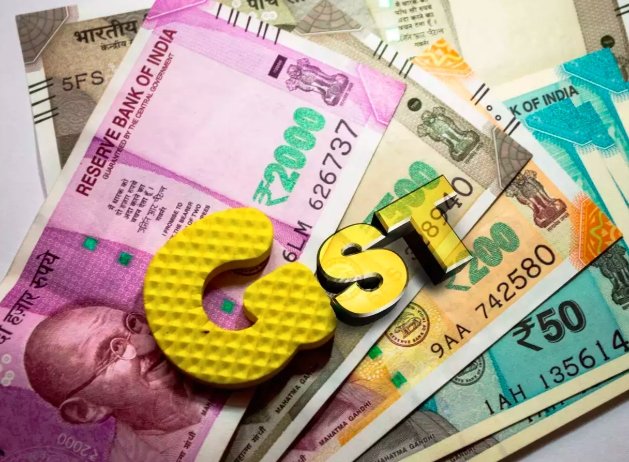The Indian government has uncovered GST evasion of Rs 824.14 crore by major crypto exchanges, including Binance, WazirX, CoinDCX, and CoinSwitch Kuber. The revelations came during a recent Lok Sabha session.
The Indian finance ministry has detected substantial Goods and Services Tax (GST) evasion by prominent cryptocurrency exchanges. A total of Rs 824.14 crore has been evaded by these platforms, with Binance’s group company accounting for the largest portion of Rs 722.43 crore. Despite this, only Rs 122.29 crore has been recovered so far, including penalties and interest.
Binance at the Forefront of Evasion
According to Pankaj Chaudhary, Minister of State for Finance, the Binance group company, a significant player in the global crypto market, is responsible for the lion’s share of the GST evasion. At Rs 722.43 crore, this amount constitutes over 87% of the total GST evasion detected. Despite this, the finance ministry has yet to recover any funds from Binance’s group company.
This news adds fuel to the growing concerns over the regulation of crypto exchanges in India. Binance’s operation in India has faced scrutiny in various forms, including regulatory challenges in the past.

Other Crypto Platforms Under Investigation
In addition to Binance, several other well-known platforms are also under investigation:
- WazirX: Allegedly evaded Rs 40.51 crore in GST, but the government has recovered Rs 49.18 crore, which includes both penalties and interest.
- CoinDCX: The exchange is under scrutiny for evading Rs 16.84 crore in GST, with Rs 20.86 crore already recovered by the authorities.
- CoinSwitch Kuber: This platform allegedly evaded Rs 14.13 crore, but the government has recovered Rs 19.38 crore.
These recoveries suggest that the finance ministry is making strides in its efforts to crack down on tax evasion in the cryptocurrency sector. However, the scale of the evasion highlights the challenges in monitoring and enforcing tax compliance within this rapidly growing industry.
The Growing Regulatory Framework Around Virtual Digital Assets
The discovery of GST evasion underscores the increasing pressure on crypto exchanges in India to comply with the nation’s regulatory framework. While cryptocurrency is not explicitly defined under the GST Act, the term “virtual digital assets” was introduced in the latest finance budget, setting the stage for further regulation.
Furthermore, crypto assets were brought under the ambit of the Prevention of Money Laundering Act (PMLA) in March 2023. This requires all crypto exchanges and service providers to comply with strict anti-money laundering measures, making it more difficult for platforms to bypass taxes or engage in illicit financial activities.
Ongoing Investigations and Future Outlook
The investigation into GST evasion by crypto platforms is far from over. As of now, a total of 47 Virtual Digital Asset Service Providers (VDA SPs) have registered with the Financial Intelligence Unit-India (FIU-IND) under the Prevention of Money Laundering Act (PMLA). However, the scope of the ongoing investigations and the regulatory burden are expected to increase as the government intensifies its scrutiny of the industry.
The crypto sector is facing a more stringent regulatory environment, with increasing pressure to comply with tax laws and anti-money laundering standards. As a result, it is likely that more crypto exchanges will be investigated in the near future, and the recovery of evaded taxes will remain a top priority for the finance ministry.
Leo Frost, the visionary founder and senior content writer at Crypto Quill, brings a wealth of expertise and creativity to the world of cryptocurrency. With a passion for blockchain technology and digital assets, Leo’s insightful articles captivate readers, offering valuable insights into the evolving landscape of crypto. As a seasoned writer and industry pioneer, Leo is committed to delivering engaging content that educates and inspires audiences worldwide.

 Bitcoin
Bitcoin  Ethereum
Ethereum  Tether
Tether  XRP
XRP  USDC
USDC  Solana
Solana  TRON
TRON  Lido Staked Ether
Lido Staked Ether  Dogecoin
Dogecoin  Figure Heloc
Figure Heloc  Bitcoin Cash
Bitcoin Cash  WhiteBIT Coin
WhiteBIT Coin  Cardano
Cardano  USDS
USDS  Wrapped stETH
Wrapped stETH  LEO Token
LEO Token  Hyperliquid
Hyperliquid  Wrapped Bitcoin
Wrapped Bitcoin  Chainlink
Chainlink  Binance Bridged USDT (BNB Smart Chain)
Binance Bridged USDT (BNB Smart Chain)  Ethena USDe
Ethena USDe  Monero
Monero  Canton
Canton  Stellar
Stellar  Wrapped eETH
Wrapped eETH  USD1
USD1  Rain
Rain  sUSDS
sUSDS  Hedera
Hedera  Zcash
Zcash  Litecoin
Litecoin  Coinbase Wrapped BTC
Coinbase Wrapped BTC  Dai
Dai  PayPal USD
PayPal USD  Avalanche
Avalanche  WETH
WETH  Shiba Inu
Shiba Inu  Sui
Sui  World Liberty Financial
World Liberty Financial  USDT0
USDT0  Toncoin
Toncoin  Cronos
Cronos  Tether Gold
Tether Gold  PAX Gold
PAX Gold  MemeCore
MemeCore  Uniswap
Uniswap  Polkadot
Polkadot  Ethena Staked USDe
Ethena Staked USDe  Mantle
Mantle  BlackRock USD Institutional Digital Liquidity Fund
BlackRock USD Institutional Digital Liquidity Fund  Aave
Aave  Aster
Aster  Pepe
Pepe  Bittensor
Bittensor  Falcon USD
Falcon USD  OKB
OKB  Bitget Token
Bitget Token  Global Dollar
Global Dollar  Circle USYC
Circle USYC  syrupUSDC
syrupUSDC  Pi Network
Pi Network  Ripple USD
Ripple USD  HTX DAO
HTX DAO  Sky
Sky  Ethereum Classic
Ethereum Classic  NEAR Protocol
NEAR Protocol  BFUSD
BFUSD  Ondo
Ondo  Pump.fun
Pump.fun  Superstate Short Duration U.S. Government Securities Fund (USTB)
Superstate Short Duration U.S. Government Securities Fund (USTB)  Internet Computer
Internet Computer  POL (ex-MATIC)
POL (ex-MATIC)  Cosmos Hub
Cosmos Hub  Gate
Gate  KuCoin
KuCoin  Jupiter Perpetuals Liquidity Provider Token
Jupiter Perpetuals Liquidity Provider Token  Worldcoin
Worldcoin  Midnight
Midnight  Quant
Quant  NEXO
NEXO  Jito Staked SOL
Jito Staked SOL  Ethena
Ethena  USDtb
USDtb  Binance-Peg WETH
Binance-Peg WETH  Official Trump
Official Trump  Rocket Pool ETH
Rocket Pool ETH  Algorand
Algorand  Binance Bridged USDC (BNB Smart Chain)
Binance Bridged USDC (BNB Smart Chain)  Spiko EU T-Bills Money Market Fund
Spiko EU T-Bills Money Market Fund  Render
Render  Wrapped BNB
Wrapped BNB  USDD
USDD  Function FBTC
Function FBTC